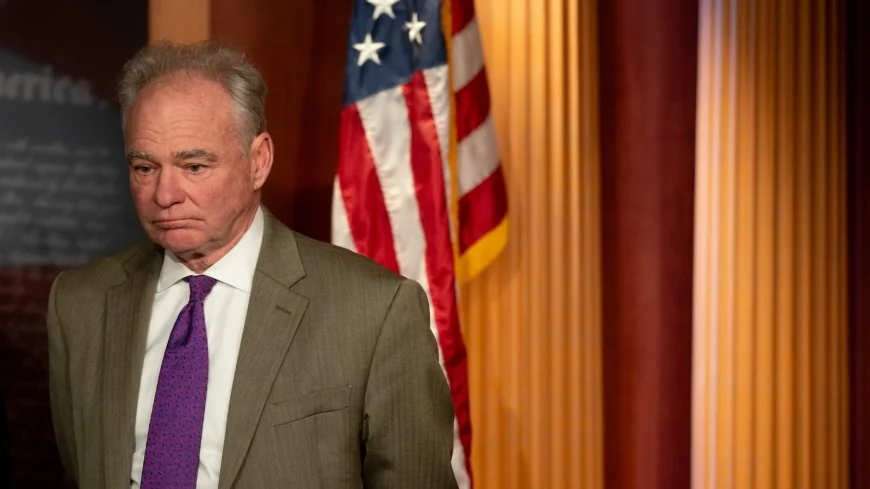Analysis of latest shutdown deal: Democrats ‘have lost a major chip in negotiations’

RICHMOND, Va. (WRIC) -- Virginia Sen. Tim Kaine and seven other Senate Democrats' decision to vote with Republicans to advance a temporary spending bill that would reopen the U.S. government is proving controversial.
On Sunday, Nov. 9, eight Senate Democrats provided the key votes needed to advance legislation that would fund the government without any guarantee of the healthcare credits that many Democrats said were their main demand in the shutdown.
The longest-ever government shutdown in U.S. history has put the Supplemental Nutrition Assistance Program (SNAP) food benefits in peril, kept federal workers without pay and most recently begun to cause chaos in the airways.
"People are starting to feel the pain of this," said political analyst and professor Richard Burke. "And for many people, they're going to feel that where policy is going to wind up — if the government does open — is not particularly far away for where it would have [been] without a shutdown in the first place."
The spending bill would fund the government through January.
PREVIOUS: US senators from Virginia split on vote to end federal government shutdown
The temporary legislation that Kaine and others voted for does not extend Affordable Care Act (ACA) subsidies that enable millions of Americans to buy healthcare coverage. Instead, it promises a vote on the issue in December.
"That's ultimately what Democrats are most worried about here, is that the subsidies will expire," Burke said. "And there will be no pressure to keep the subsidies going [without a shutdown]. And health insurance markets will adjust and people will lose access to their health care."
On Monday, Nov. 10, Kaine said he was satisfied with the bill in its current state because it funds SNAP benefits and guarantees some protections for federal employees.
"The issue for all the Democrats was, was this enough?" Kaine said of negotiations before the vote. "Some of us concluded it was, some of us concluded it wasn't."
Sen. Mark Warner (D-VA) came to the opposite conclusion.
"I couldn't vote for something that didn't address the health care crisis that is imminent," Warner said in a video Monday.
Burke said when the ACA tax credit extension vote comes up in December, there will be no pressure for Republicans to vote with Democrats, as this temporary spending bill funds the government through January.
"Democrats in the Senate joining on with this bill have lost a major chip in negotiations," Burke said.
But Kaine said Republicans refused to negotiate on healthcare while the government was shut down, and other issues began to outweigh it.
"If we had kept the government shut down for another week, would [Republicans] have relented? No," Kaine said. "Another month, would they have relented? No."
"The one thing I could guarantee, though, is SNAP beneficiaries would suffer more," Kaine said. "Federal workers would miss more paychecks. Air traffic control would be more chaotic."
Burke noted that Warner is up for reelection in 2026 while Kaine is not, which could have affected their decisions to vote for the bill.
"It's going to seem that the Democrats did a lot of obstruction, in the Senate in particular, for something that ultimately did not really matter from the perspective of influencing policy," Burke said.
The Senate still needs to make a final vote on this bill before it can go to the House, but they're on track to reopen the government as soon as this week.

 VENN
VENN 





